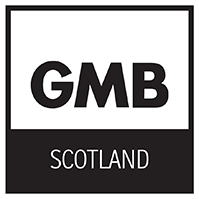GMB Scotland Secretary Gary Smith
The UK Government will set the budget today against the backdrop of a national and international crisis. It is a pivotal moment in our response to Coronavirus.
The UK Government will set the budget today against the backdrop of a national and international crisis. It is a pivotal moment in our response to Coronavirus.
Ministers were right to warn us about the worst case scenarios for the spread of the virus. There can be no room for complacency - this is real and will impact on all of us to varying degrees of severity - but the Chancellor needs to stack the odds in the UK’s favour by ripping-up the fiscal rule book that has hammered our public services in the last ten years.
Employers moved quickly last week, particularly in our NHS, social care sector and local services, where public facing workers will inevitably encounter a heightened risk of exposure. Guidelines and toolkits were quickly issued but we are responding to a crisis from a position of significant weakness in our public services, and it’s already becoming clear.
A case in point is the Scottish Ambulance Service. This week we learned that only fifteen per cent of frontline staff received protective equipment training, the fitting of bespoke respiratory masks to mitigate the chance of exposure to Coronavirus while working. An accelerated programme for fittings has been put in place but the question posed by GMB is how quickly full coverage can be achieved against the backdrop of a service already on its knees?
It’s an inconvenient truth for some but the austerity that continues to ravage our public services is the fundamental weakness in our resilience and response to this virus. While Ministers were alerting the public to the threat of Coronavirus, councils up and down the country were announcing further rounds of cuts to front-line services. No one spoke about the cuts and their capacity to blunt our response to this exceptional threat.
As the virus spreads, we have a responsibility to look after each other and practice the public health recommendations but government must do more to ensure the workers who will be needed to care for all of us can actually take care of themselves - doctors, paramedics, nurses, carers and cleaners, from the frontline of the NHS to the heart of the community.
Countries around the world are now responding to this crisis with economic stimulus packages worth billions and with good reason; conventional wisdom suggests you cannot cut your way out of a crisis.
If Britain is to follow suit then the Chancellor needs to acknowledge the elephant in the room: Coronavirus is the clear and present danger but austerity is the underlying disease, and we need to defeat it.

